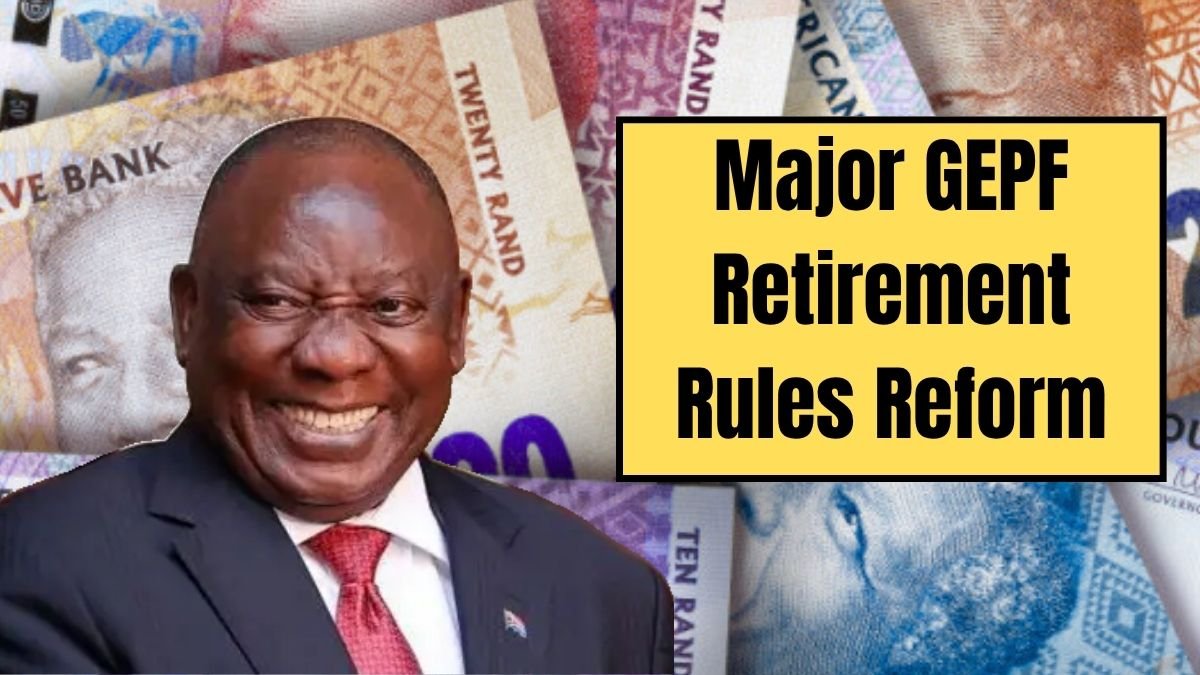The government of South Africa has made a bold move by approving a significant alteration to the Government Employees Pension Fund (GEPF), and this move reflects the public sector’s retirement policy that has been in place for decades. Therefore, the government employees can only claim full pension benefits if they serve for 67 years, which clearly shows that the past era of 60 or 65 years for retirement has already gone.
Changing the Retirement Age to 67
The retirement policy overhaul has been conducted and considered as part of the comprehensive strategy of the government towards GEPF, the pension fund which is currently serving 1.2 million active members and 470,000 retirees. The change in the full retirement age rule will be implemented completely by January 2026, thus, the official retirement age will be 67. Workers that decide to retire before they turn 67 will receive lower pensions, as their early retirement will be calculated on the basis of new actuarial reduction factors. The rationale behind the move is to give the fund its rightful financial obligations while at the same time considering the phenomenon of increased life expectancy and the current economic scenario.
Government’s Side Justification of the Reform
The reform was considered to be a stronghold of the GEPF against all financial issues that may arise in the future by means of the National Treasury and the Department of Public Service and Administration. The raising of life expectancy together with the decrease in number of active contributors has made the matter of the fund’s viability more pressing than ever. A representative of the Treasury stated:
- “We are putting GEPF on par with the world’s best pension plans. In a lot of places, the retirement age has been increased to 67 and even higher. The reform not only assures the fund’s liquidity but also makes it just to the current workers and the following generations.”
The reform was actually a part of the government’s fiscal orthodox policy as the longer labor service times prolonged the period of pension outflows and also the period of receiving contributions from employees.
Impact on Present and Future Employees
In public service, the new rule will be for government employees, teachers, medical staff, and police plus all workers connected to GEPF. However, it is expected that those who will be close to retirement will be given transitional measures so as not to be unfairly treated.
The following are some of the changes among others:
- By the age of 67, all retirement benefits will have been completely paid out.
- The early retirement option will be available from age 55 but with a lower benefit than the normal retirement age.
- For those who work until age 67, the longer contribution period may lead to larger final payouts due to a bigger pension pot.
- The current employees who are aged between 60 and 65 will have the right to retire according to the existing regulations before the complete implementation of the reform.
Union and Employee Reactions
The policy in question has created quite a hubbub among the unions and employees, who all have opposite opinions on the issue. Some of the unions admit that it is necessary to completely reform the pension system, while others argue that the next increase in retirement age will mean that the public sector is closed off to fresh, young practitioners.The Public Servants Association (PSA) has demanded even broader consultations, which is meant to ensure that workers are protected against the possible negative impacts of the new policy, especially in the health and police sectors which are notorious for being physically demanding.
What Employees Should Do Afterwards
The first step for GEPF members is to verify their pension statements and then they should have a consultation with fund advisors to understand the new rules’ impact on their retirement plans. In addition, they need to ensure that their years of service, current salary bracket, and contribution history are thoroughly checked, otherwise, their calculations under the new system may be declared invalid.
Also Read: SASSA R3,070 November Grant Payments Confirmed, See Full Details
